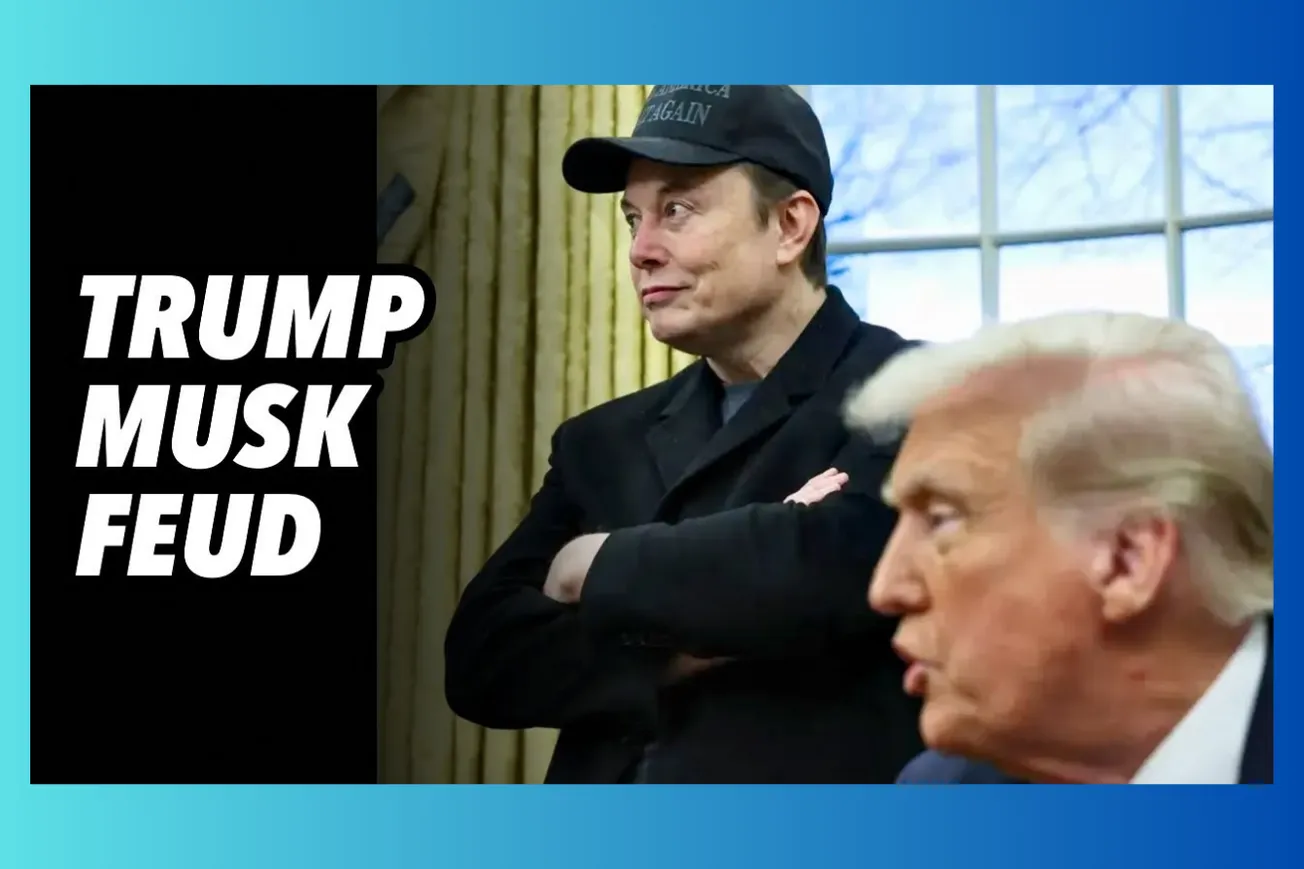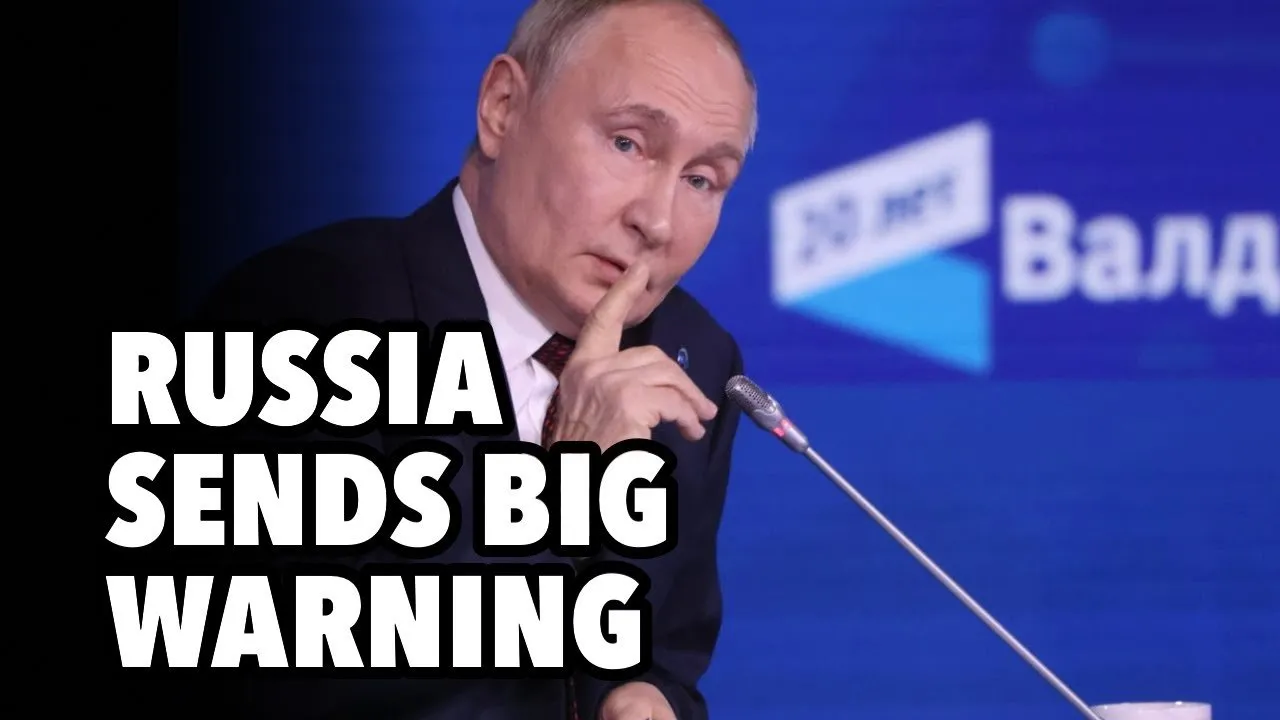Table of Contents
The explosive public breakdown between Trump and Musk exposes the fundamental differences between political and economic power—and offers crucial lessons for anyone navigating elite circles.
Key Takeaways
- Elon Musk learned the hard way that $200 billion doesn't equal political power when push comes to shove
- The DOGE experience gave Musk a taste of real governmental authority, making the transition back to business feel like a betrayal
- Trump's management mistake was treating Musk like a co-president rather than maintaining proper distance
- Political power can be enforced with police, intelligence, and military—wealth alone cannot compete with that
- Musk's public accusations about Epstein files likely crossed a line that makes reconciliation extremely difficult
- The federal bureaucracy's jealousy and resistance played a major role in Musk's eventual marginalization
- Business success, no matter how extraordinary, doesn't translate directly to political effectiveness
- Trump's relative restraint compared to Musk's public outbursts reveals the difference between a politician and a businessman
- The constitutional system recognizes only one president—and it's not the richest man in the world
- Musk's bitter feelings may prevent reconciliation even if Trump remains willing to patch things up
The Collision of Two Different Kinds of Power
Here's what nobody wants to say out loud: watching Elon Musk discover the limits of his influence has been both fascinating and brutal to witness. The man who revolutionized electric vehicles, privatized space exploration, and reshaped social media just learned that $200 billion doesn't buy you the kind of power that comes with a government badge.
"You're never going to have what the politicians have," the analysis points out with stark clarity. "Which is real power. They can enforce that power with police, with intel, with guns, with military. They may have no money. They may be completely broke. But the power that they wield is something that the Musks and the Zuckerbergs and the Bill Gates, all these people, no matter what ideas they have, no matter what impact and influence they have, they'll never obtain that type of power."
Think about what Musk experienced during his DOGE tenure. For a few extraordinary weeks, he had the authority to investigate federal agencies, expose government waste, and potentially shut down entire departments. He wasn't just making suggestions from the outside—he had actual governmental power.
- USAID investigations revealed information that will endure regardless of what happens next
- Direct access to federal bureaucracy let him see how the system really works from the inside
- Presidential backing gave his recommendations real weight and consequences
- Media attention amplified every DOGE finding and recommendation
- Unprecedented transparency showed the public exactly how their tax dollars were being spent
But here's the crucial part: all of that power existed solely because Donald Trump allowed it to exist. The moment Trump decided Musk's approach was causing more problems than it solved, that authority evaporated instantly.
For someone accustomed to building companies where his word is law, where his vision drives trillion-dollar valuations, this must have felt like a fundamental betrayal of reality itself.
The Psychology of Power Withdrawal
What we're witnessing isn't just a political disagreement—it's a psychological crisis. Musk got a taste of what it feels like to wield actual governmental authority, and now he has to go back to "merely" being the CEO of multiple revolutionary companies.
"How do I go from the government and transition back to the business world knowing and seeing everything that was there with the government?" the commentary asks. "I got to look on the inside, the real inside, and how do I go back to being the CEO of Tesla and SpaceX?"
This explains the bitterness in Musk's recent public statements. When you've seen behind the curtain of federal power, when you've had the authority to potentially reshape entire government agencies, returning to the private sector—even as the world's richest man—feels like a massive step down.
- Musk feels betrayed because he thought his business success would translate to lasting political influence
- The DOGE momentum fizzled despite initial aggressive pursuit and media attention
- Trump moved on to other priorities like working with Palantir and other companies
- The "big beautiful bill" proceeded without Musk's input, despite his opposition
- Other billionaires gained Trump's attention while Musk found himself increasingly marginalized
The psychological pattern is clear. Musk threw himself completely into DOGE, "neglecting his own businesses by focusing overwhelmingly on Doge." He conducted the operation "extremely aggressively for several weeks." But attacking the entire federal bureaucracy head-on was always going to be "massively challenging and difficult."
When that effort lost momentum and Trump had to distance himself, Musk was left feeling like all his extraordinary achievements had been dismissed.
Trump's Management Mistake: The Favorite Problem
Here's where Trump, for all his political skills, made a crucial error in management psychology. By treating Musk as essentially a co-president, he created unrealistic expectations and destabilized his own team.
"I think Trump went much too far," the analysis concludes. "It may have had some effect on the public, but the people that would have affected were two groups of people. Other people within the administration and the federal bureaucracy, they would have been very very jealous."
Consider the optics from inside the administration:
- Musk appeared more frequently with Trump than VP Vance did in public appearances
- International calls included Musk as if he were a cabinet-level official
- Constant travel together suggested Musk had unprecedented access and influence
- Free rein to attack federal agencies with Trump standing approvingly beside him
- Public perception of co-presidency undermined other officials' sense of their own importance
"They say to themselves, 'Is the president basically under the control of this man with the $200 billion dollars and he's shutting us out and Musk is really running things?' And there will be anger and there will have been frustration and there will have been complaints to Trump about this."
But the bigger problem was what this did to Musk's own psychology. "It made Musk feel much more powerful than he really was. He never understood that he was just ultimately serving because Trump wanted him to serve, that he was there at Trump's pleasure."
The Epstein Line That Cannot Be Uncrossed
Political feuds often have a moment when they cross from professional disagreement into personal destruction. Musk's suggestion that Trump won't release Epstein files because he's "somewhere in the Epstein files" likely represents that point of no return.
"Do you think this stuff can be repaired now or did Musk just go, you know, a bit too far there?" the interviewer asks.
"I think a lot too far there," comes the immediate response.
Public accusations involving Epstein represent more than policy disagreement—they're character assassination attempts that threaten to destroy reputations permanently. In political circles, certain lines simply cannot be crossed without ending relationships entirely.
- Policy disagreements can be resolved through compromise and negotiation
- Personal accusations create lasting damage that's extremely difficult to repair
- Public humiliation forces the target to respond or appear weak
- Conspiracy implications suggest fundamental character flaws rather than mere disagreements
- Media amplification ensures these accusations become permanent parts of the public record
"Trump is actually somebody who can be pretty forbearing and I think he's worked out who Musk is and understands him very well," the analysis suggests. Trump might be willing to reconcile, but "the person who may find that very difficult to do is Musk."
The psychology is revealing: "He comes across to me as very bitter, very feeling very betrayed, very much the victim, very angry. And people who have these emotions often find it very very difficult to put them to one side."
The Ruthless Reality of Political Power
What this entire episode reveals is something most people never fully grasp: politics operates by completely different rules than business, no matter how successful you've been in the private sector.
"It's difficult for outsiders to understand what an utterly ruthless business politics is," the commentary explains. "You can't allow feelings of gratitude such as Trump might feel towards Musk to take complete control of what you do because otherwise what you're going to end up doing is you're going to give Musk everything that he wants and eventually Musk becomes a more important person than you are."
Musk's mistake was thinking his business achievements would automatically translate to political influence. But:
- Business success doesn't equal understanding of federal bureaucracy
- Entrepreneurial methods don't work when applied to political systems
- Corporate authority operates differently than governmental power
- Market efficiency conflicts with political necessity and compromise
- Innovation speed clashes with institutional inertia and legal requirements
"He is not a politician and he doesn't understand that politics and federal bureaucracies function in a different way."
The Constitutional Reality Check
Perhaps the most important lesson from this entire saga is that the American political system recognizes only one person as president, regardless of wealth, influence, or contributions to the campaign.
"The constitutional system of the United States recognizes only one person as president and that is Donald Trump. It is not Elon Musk. Elon Musk forgot that he serves at the president's pleasure as every other official of the government does."
This isn't just a legal technicality—it's a fundamental principle that protects democratic governance from being captured by economic elites. No matter how much money you have, no matter how revolutionary your companies, no matter how much you contributed to someone's election, you cannot become co-president through wealth alone.
- Democratic accountability requires clear lines of authority
- Constitutional structure prevents oligarchy by limiting executive power to elected officials
- Public service means serving at the pleasure of the president, not as an equal partner
- Political legitimacy comes from elections, not economic achievement
- Separation of powers includes separation between private wealth and public authority
Lessons for Business Leaders Entering Politics
The Trump-Musk breakdown offers crucial insights for any business leader considering government service:
Understand the transition is temporary. No matter how important your role becomes, you're always serving at the pleasure of elected officials. Government service for business leaders is inherently temporary, and you need to plan for that reality from day one.
Political power and business power operate differently. Success in business doesn't automatically translate to effectiveness in government. The skills that made you wealthy may not be the skills that make you politically effective.
Maintain perspective on your role. You're there to serve the president's agenda, not to become co-president. Losing sight of that distinction leads to exactly the kind of conflict we're witnessing.
Plan your exit strategy. Know how you'll return to your business empire when your government service ends. Don't let the intoxication of political power make you forget where your real authority lies.
Avoid public feuds with sitting presidents. No matter how wronged you feel, no matter how much you contributed, public battles with the person who actually holds constitutional authority are unwinnable.
The Bigger Picture: Wealth vs. Democratic Authority
This entire episode illuminates a crucial tension in modern democracy: what happens when individuals accumulate wealth so vast it rivals the resources of nation-states? Musk's companies have market capitalizations that exceed the GDP of most countries. His influence over information flow through X affects global politics. His space capabilities are essential to national security.
Yet despite all that influence, he discovered that political authority still trumps economic power when the two come into direct conflict.
"Much of MAGA was never that keen on Musk in the first place," the analysis notes, suggesting that even within Trump's coalition, there was resistance to Musk's outsized influence.
This speaks to something deeper about democratic governance. Voters may respect business success, but they don't necessarily want billionaires running their government. There's an intuitive understanding that the skills required to accumulate wealth aren't necessarily the same skills required to govern effectively.
The irony is that Musk's achievements are genuinely extraordinary. He has been "the most successful businessman in the United States since Steve Jobs basically." His companies have revolutionized multiple industries and contributed enormously to American technological leadership.
But none of that changes the constitutional reality that political power flows from democratic mandate, not economic achievement.
The outcome of this feud will likely determine whether other business leaders learn from Musk's experience or repeat his mistakes. The lesson seems clear: you can be worth $200 billion and still discover that some forms of power simply cannot be purchased.





